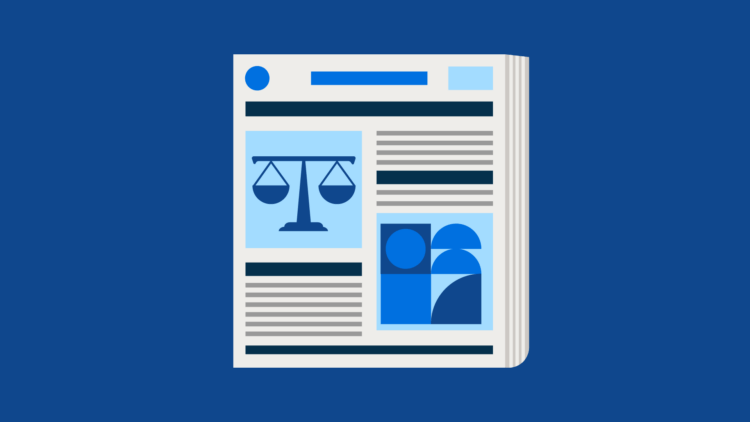When Craig called for his coaching appointment in March, he sounded different. His voice was tense. He spoke rapidly. He lives in a state with a strict stay-at-home order due to COVID-19 and was sequestered at home with his lawyer wife and two young sons, seven and nine.
“I feel like I’m going to jump out of my skin!” he said. “My kids are home with us and their school is sending home mountains of worksheets. My wife and I are trying to share the responsibility but we both have too much to do. My clients are more demanding than ever and I’m falling further and further behind. I just can’t stop worrying.”
He described a roller coaster of feelings—both restless and lethargic. He was constantly worried about making mistakes that could cost him clients or worse, and was having trouble focusing as well as insomnia.
Like most lawyers, Craig places high demands on himself and is often highly critical of his performance. On that day, Craig was suffering from increased anxiety.
Lawyer anxiety is a challenge many attorneys face, but it is manageable. Here, I offer some tips to manage attorney anxiety based on many years of coaching lawyers through these types of experiences.
What causes attorney anxiety?
Anxiety among lawyers is common, even prior to the COVID-19 pandemic. A 2016 study conducted jointly by the ABA Commission on Lawyers Assistance Programs and Hazelden Betty Ford Foundation found that of the nearly 15,000 lawyers surveyed a whopping 19% reported having severe anxiety symptoms. And, ALM’s Mental Health and Substance Abuse Survey, published in 2020, found that 64% of the more than 3,800 survey respondents felt they had anxiety.
Lawyers are primed to experience anxiety. They are trained to be pessimists, ever on the lookout for what could go wrong. Expected to anticipate and guard against possible future threats, lawyers are basically professional worriers. In time, worrying becomes a way of life, with the anxious lawyer seeing problems everywhere they turn.
Law is also a demanding profession. Legal work is detail-oriented and the stakes are high—life, liberty, and property are at stake. Law offices can add to the pressure, rewarding those who work long hours and providing little or no emotional support. In that environment, lawyers tend to be perfectionists, placing high demands on themselves and judging their performance harshly.
Additionally, lawyers have little leeway or autonomy to make decisions, and the adversarial nature of law can be a zero sum, win-lose game that adds to the pressure.
Am I a lawyer with anxiety?

We all worry. We all get stressed. We all feel anxious. It’s normal and it typically passes. But there are differences that lawyers should be aware of.
According to the American Psychological Association, stress is a response to an external challenge, such as a conversation with an angry client. Anxiety is a set of physical and mental reactions that continues in the absence of an external source of stress.
The symptoms of stress and anxiety are similar:
- Worry
- Insomnia
- Lack of focus
- Irritability
- Fatigue
- Muscle tension
If you’re experiencing several of the above symptoms on a regular basis, you may be experiencing anxiety.
When the symptoms are intense and persistent, with intrusive thoughts and uncomfortable physical symptoms that don’t go away, a person may be experiencing an anxiety disorder which can interfere with functioning and make it impossible to experience joy. This may require treatment by a mental health professional.
Prolonged stress and anxiety can lead to burnout. While not a medical diagnosis, burnout is a reaction to workplace stress that contains a lot of the same symptoms as stress and anxiety: irritability, insomnia, lack of focus, as well as uncomfortable physical symptoms such as fatigue, headache, and exhaustion. Burnout also involves a loss of motivation, job disillusionment, and a loss of personal identity. At this point, many lawyers consider leaving the field, despite the perks of a good income and a profession that commands high respect. Learn more about lawyer burnout here.
You may like these posts
How to manage anxiety as a lawyer
There is a lot that can be done to manage lawyer anxiety. It may take time and experimentation. There is no one-size-fits-all approach. Some people respond to a single modality, but most people benefit from using a variety of the following suggestions.
1. Use the power of social connection
Social connection is a feeling of closeness and belongingness with others. Those who feel more connected to others have higher levels of physical health as well as greater mental and emotional well-being, including lower levels of anxiety and higher levels of self-esteem. Having close friends, colleagues, or family members to share personal problems with may be more important to well-being than traditional risk factors such as smoking, blood pressure, and lack of physical activity.
Social isolation can make anxiety symptoms worse but since it’s largely subjective, even if you are isolated and living alone, social connection can help resolve anxiety.
For anxious lawyers, talking to one or more trusted partners, relatives, friends and colleagues can provide relief. “Getting it off your chest” actually works.
2. Practice Mindfulness
Mindfulness is the mental state that happens when one’s attention is focused on the present moment without passing judgment on their thoughts, emotions and bodily sensations. A mindfulness practice is a well-known and documented path to reducing anxiety.
A mindfulness session might simply entail spending a few minutes daily, noticing what is happening in the body while simultaneously letting go of any narrative about it: “I am noticing that there is tension in my jaw and a fluttering sensation in my belly.” The meditator would simply notice those sensations, without thinking that it’s bad or good or wishing it away—mindfulness is simply a noticing.
3. Get regular exercise

Exercise is effective in reducing anxiety in numerous ways:
- It acts as a diversion from ruminating and worry.
- It reduces muscle tension.
- An increased heart rate stimulates the body to release anti-anxiety hormones
- It increases our sense of resilience—a sense of “I can get through this.”
- It activates the pre-frontal cortex, which improves out ability to see through our stressful thoughts.
The more vigorous the activity, the greater the benefit. But even the sedentary can benefit—research indicates that just a single session of exercise can help reduce anxiety.
For extra benefit, walk in nature or a green space whenever possible. Research shows that being in nature has an even more powerful effect on reducing anxiety.
So get moving, doing something you enjoy—a walk, a bike ride, an exercise class. The stay-at-home orders have brought a wealth of online exercise, dance, Pilates and yoga classes that can be done without equipment, right at home.
4. Make time for activities you find energizing
Spending time with a pet, listening to music, laughing, even smelling the roses or a favorite scent are all ways to reduce your lawyer anxiety. Avoiding caffeine, alcohol and smoking, eating regular, healthy meals, and making sleep a priority are other things you can do to find more calm and reduce anxiety.
5. Challenge your runaway thoughts
One of the biggest culprits in driving anxiety is a mind full of runaway thoughts. We can go from a relatively neutral state to imagined disaster in seconds—and this is especially true for lawyers who are perfectionists. To counter the disaster scenario, ask yourself which of your thoughts are true. In other words, which are factual and provable, and which thoughts are merely thoughts or conclusions without evidence?
Another simple yet powerful tool to detach from a runaway thought is from Acceptance and Commitment Therapy (ACT). The ACT de-fusion technique allows us to distance and disconnect from our anxious thoughts and to see them for what they actually are—mental word streams and temporary bodily sensation, rather than predictions of catastrophe.
Here’s how it works:
- Find the thought that is driving your anxiety, for example “I’m going to lose this client.”
- Repeat it mentally like this: “I’m having the thought that I’m going to lose this client.”
- Notice how that brings detachment.
6. Replace your perfectionism with excellence
This is an ideal time for lawyers with anxiety to drop their drive for perfection as well. Understanding that perfectionism is vastly different from excellence is key. Perfectionism—striving for flawlessness and being overly self-critical—is a big driver of lawyer anxiety and poor health; excellence on the other hand identifies and appreciates “good enough” work and is far more likely to result in satisfaction and success.
Centuries ago, the French philosopher Voltaire put it this way: “The perfect is the enemy of the good.”
7. Seek the help of a coach

Many coaches are trained in a variety of techniques that can reduce stress and anxiety across professions, including lawyer anxiety. We deal in present day problems, and use a variety of techniques like mindfulness, questioning anxious thoughts to find the truth, and Acceptance and Commitment Therapy (ACT).
For example, in my coaching practice, I work with lawyers experiencing mild to moderate anxiety, encouraging them to establish regular mindfulness practices as well as serving as a trusted confidante to discuss their fears and vulnerabilities. In that way, lawyers can get the benefits of additional social connection as well as strategies to plan their futures when the shutdowns are lifted. Like many coaches, I also offer weekly group calls to discuss ways to manage the social and economic uncertainties of the pandemic.
Coaches typically work remotely, so working with a coach by phone or videoconferencing is simple to arrange.
8. Seek the help of a medical professional
For more extreme cases of lawyer anxiety, attorneys should consider working with a psychotherapist or a psychiatrist. Psychiatrists are licensed MDs who can prescribe anti-anxiety drugs to reduce the physical and emotional impact of extreme stress. Therapists can provide emotional support.
During the COVID-19 shutdowns, both psychiatrists and therapists are working remotely by videoconferencing. Your primary care physician should also be consulted (as he or she knows your medical history which could be influencing your anxiety) and will able to make referrals to therapists and psychiatrists as needed.
Managing lawyer anxiety leads to greater client satisfaction and less stress
My client Craig is doing better now. He finally made time for a regular mindfulness practice—something he’d avoided the prior year we’d been working together.
He confided in a colleague that he had school-aged children at home and discovered that he was not alone—several others in the firm had the same situation. They approached their Practice Administrator as a group and discovered that she also has children at home.
The firm is trying to find solutions to these challenges. Even though the situation isn’t perfect, Craig feels relieved that he’s not alone. He’s now sleeping better and is using effective tools when his stressful thoughts begin to escalate. Importantly, he feels more competent and believes that his work product has improved.
There is no quick-fix for anxiety which has been heightened by the stress of the global pandemic. But there are many effective approaches that lawyers can try. Everyone is different, but usually a variety of approaches can reduce anxiety significantly.
It’s important for lawyers to understand that self-care is not selfish or a waste of precious time. Managing attorney anxiety is an important part of a lawyer’s competence and excellence.
The National Task Force on Lawyer Well-Being, a coalition of national legal associations committed to transforming and improving the well-being of the legal system expressed it like this: “To be a good lawyer, one has to be a healthy lawyer.”
Implementing the strategies in this post and seeking help when necessary can result in significantly reduced anxiety, better focus, greater competence and most likely, better outcomes for clients. And as every lawyer knows, satisfied clients lead to far less stress.
We published this blog post in May 2020. Last updated: .
Categorized in: Uncategorized








